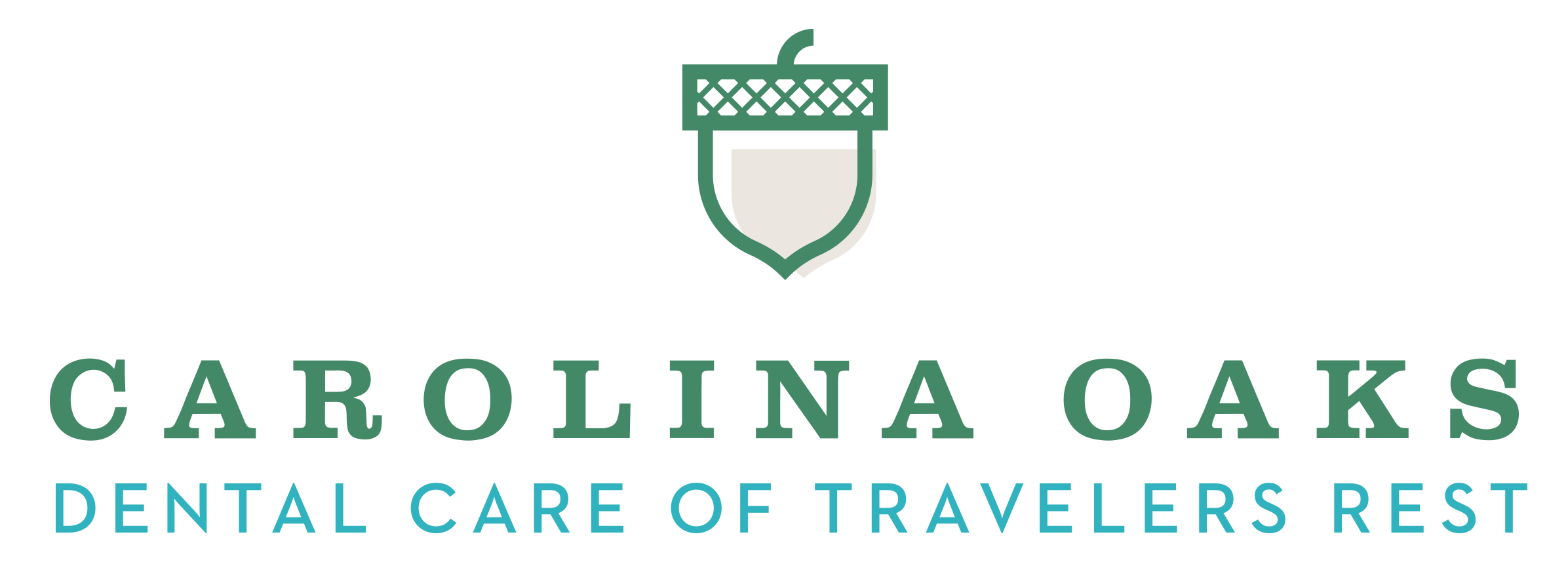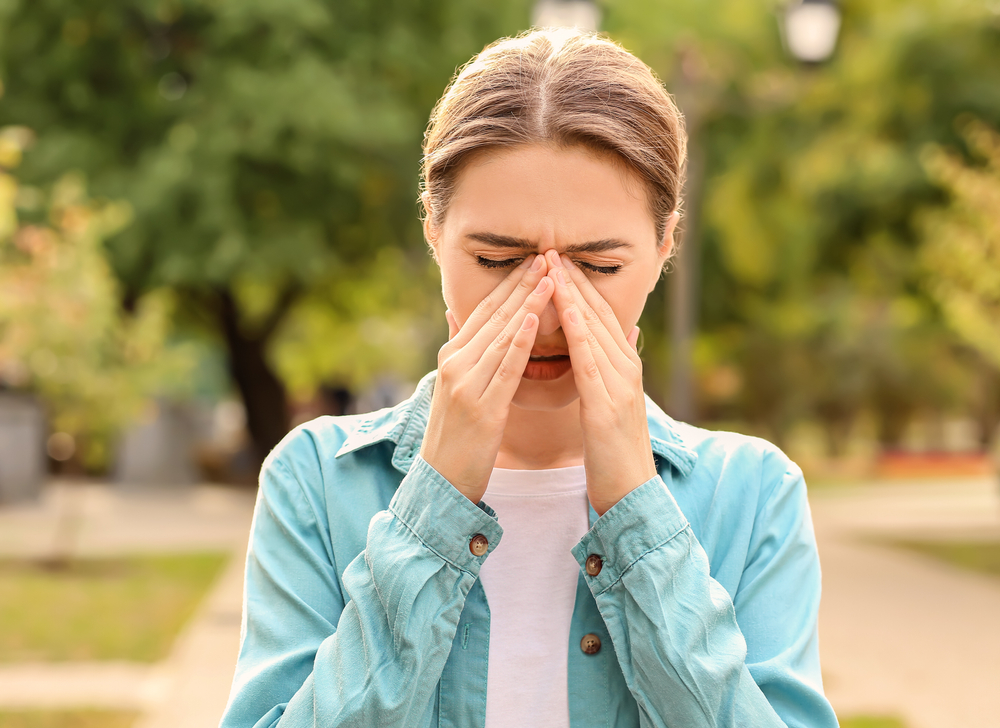The flowers are in full bloom, the weather is getting warmer and the days are finally getting longer. At Carolina Oaks of Travelers Rest, we look forward to this season all year long — but for many people, some of our staff included, spring and summer aren’t always sunshine and roses. Along with the sunny days come pollen, grasses and symptoms of seasonal allergies. You may have experienced a stuffy nose and itchy eyes from allergies, but did you know there’s another less common symptom that you might not even realize is related to your allergies? Tooth pain.
Yep, if you have allergies and your teeth are sore, the two things could be linked. And now that allergy season is in full swing, you might be wondering what you can do to relieve your discomfort. The team at Carolina Oaks Dental Care of Travelers Rest is here to explain how allergies can cause sore teeth, and how you can treat it so you can get back outside doing the things you love this summer.
In this post, we’ll answer your key questions about teeth and allergies, including:
- Can allergies cause sore teeth?
- Why do allergies make my teeth hurt?
- How to tell if allergies are the cause of your sore teeth
- How to relieve sore teeth caused by allergies
Can Allergies Make My Teeth Hurt?
It’s safe to say that seasonal allergies are an extremely unwelcome side effect of the warmer seasons. If you’re one of the unlucky ones who suffer from allergies, you’re well acquainted with symptoms like itchy eyes, stuffy or runny nose, coughing and sneezing. But have you ever noticed that your teeth get sore when allergy season hits? Well, you’re not imagining it. If you’re wondering if allergies can cause tooth pain, the short answer is yes.
Why Do Allergies Make My Teeth Hurt?
So how exactly do allergies affect your teeth? Seasonal allergies typically affect your sinuses, causing congestion and pressure in the head and face. This includes your maxillary sinuses, which are located right above your teeth. In fact, the root tips of your upper molars are so close to your maxillary sinuses that pressure and congestion from allergies may radiate into the roots of your teeth.
In addition to sore teeth, allergies may also cause other oral health issues like dry mouth. That’s partially because the congestion makes it harder to breathe naturally through your nose, forcing you to breathe through your mouth. Breathing through your mouth inhibits the production of saliva, ultimately resulting in dry mouth. Saliva is incredibly important in the maintenance of healthy teeth and gums, acting as a natural cleaning agent that whisks away food particles, plaque and bacteria. Without enough saliva, debris has the opportunity to build up on the teeth and gums, leading to the development of gingivitis and cavities. A lack of saliva may also cause bad breath.
How Do I Know If Allergies Are Making My Teeth sore?
To figure out if allergies are the culprit behind your sore teeth, start by paying attention to when your teeth get sore. Are your sore teeth accompanied by other symptoms of seasonal allergies? If you also have sinus pain — in your nasal passages and forehead — along with a stuffy nose, there’s a good chance your tooth pain is caused by allergies.
However, if you don’t have any other allergy symptoms, or if your teeth are extra sensitive to hot or cold foods, there may be something else causing your tooth pain. It’s important to make an appointment with your Travelers Rest dentist to find the root cause of your tooth pain.
How to Prevent Sore Teeth from Allergies
Your best bet in avoiding allergy-related tooth pain is to relieve (or better yet, prevent) sinus pressure from allergies. On high-pollen days, you may want to limit your time outdoors to keep allergy symptoms from developing and to avoid the need for medications. If you’re already dealing with congestion from allergies or can’t reduce your exposure to pollen, over-the-counter decongestants or antihistamines can provide relief. By clearing up your sinuses and treating allergy symptoms, you’ll experience a reduction in tooth pain as well.
If antihistamines aren’t cutting it, you may need to use a nasal spray to relieve severe allergy symptoms and related tooth pain. Keep in mind that allergy medications often exacerbate dry mouth. Keep a bottle of water close by so you can stay hydrated and steer clear of the oral health side effects of dry mouth.
Tooth pain, whether it’s related to allergies or not, can interfere with your ability to live your daily life. If you’re suffering from allergy-induced tooth pain, or you’re not sure what’s making your teeth sore, contact Carolina Oaks Dental Care of Travelers Rest to book an appointment today.



